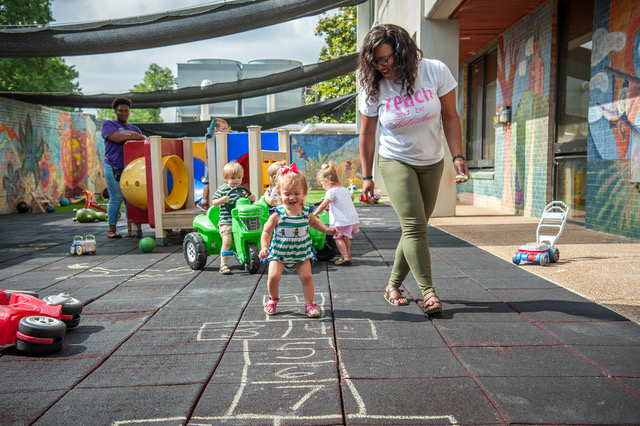The Collective Impact Approach
Our Approach

Forum for the Future follows a Collective Impact model to achieve big goals
Collective impact is a collaborative approach to solving complex social problems that breaks down silos and brings organizations from different sectors together in a structured and coordinated way. This approach allows Forum for the Future members to leverage their unique strengths, share resources, and work together in a coordinated and aligned manner towards common goals, which leads to lasting, systemic change.
The collective impact approach involves 5 key elements:
A common agenda
Everyone involved shares a common understanding of the problem and commits to a shared vision and approach.
Shared measurement
Everyone tracks progress in same way, using common data indicators to measure success. input from childcare providers, early childhood professionals and policymakers, and parents.

Mutually reinforcing activities
Everyone plays their own role, but our coordinated efforts fit into a larger plan of action.
Continuous communication
Consistent and open communication builds trust and keeps everyone on the same page.
Backbone support
One team is dedicated to keeping the work organized and moving forward. Maintaining momentum isn’t left up to chance.
Forum for the Future is made up of
four primary and overlapping groups
Donate To Save The Oceans

Backbone
Data Team
Steering Committee
Working Groups
Members
Forum for the Future Principles
Forum for the Future is committed to six core principles to guide our work. The principles are designed to help us create the right conditions to work effectively with current and future partners. The principles also help us determine who needs to be involved with different aspects of the work, guide how decisions are made, and shape how success is defined.
Overcome Mistrust:
Balance Power:
Dismantle Inequities:
We work to make inequities visible. Our public systems (education, healthcare, criminal justice, housing, etc.) were not created to produce equal outcomes or experiences for everyone. These structures – past and present – maintain inequity by design. In response, we must be bold. It takes bold leadership to redesign unjust systems and catalyze positive change.
